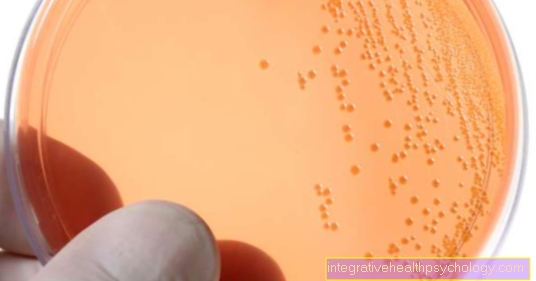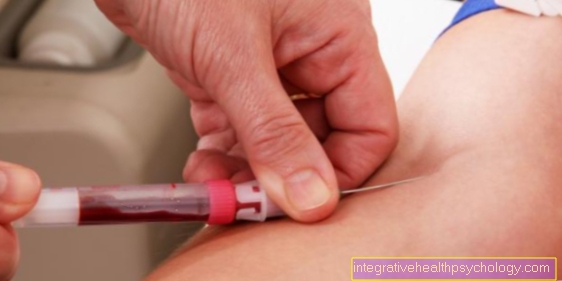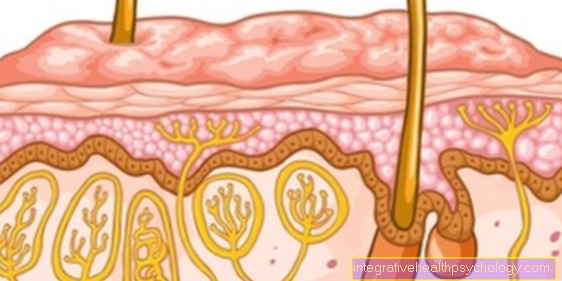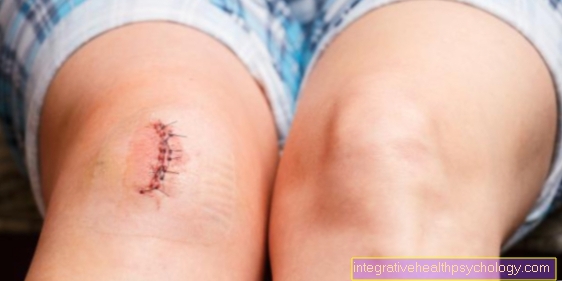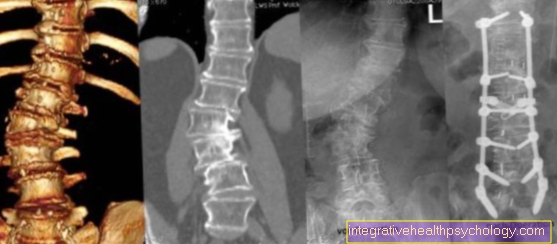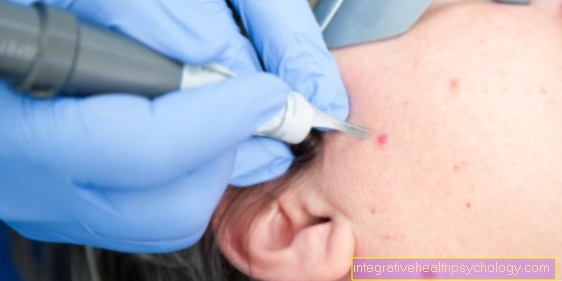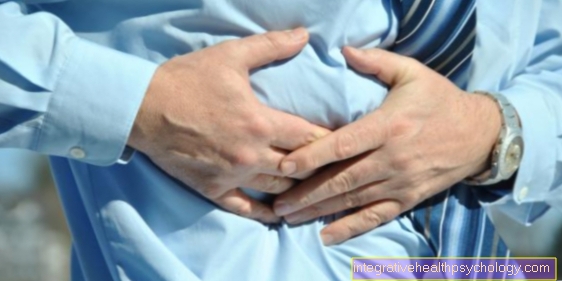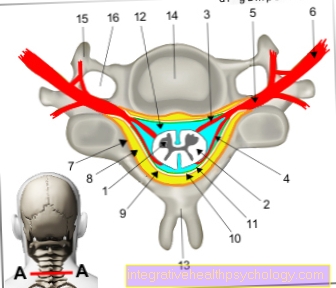Lymph node swelling from an allergy
introduction
Lymph nodes are part of the body's defense system. Lymph node swelling usually occurs when the immune system becomes active for various reasons. Common reasons for lymph node swelling are various types of inflammation in the body. Cancer can be a serious cause of lymph node swelling. Not so common reasons for swelling of the lymph nodes can also be systemic diseases, the use of certain medications or certain allergic reactions.

causes
Typically, no lymph node swelling is described as a symptom of classic allergies. The allergies that can cause lymph node swelling are usually not the typical type 1 allergies that e.g. occur in response to nuts, house dust, or pollen. With type 3 allergies, there is a possibility of swelling of the lymph nodes. They don't necessarily express themselves like the classic allergies. They can be triggered by autoimmune diseases, bacterial infections, inhalation of dusts or certain drugs or injections.
If the lymph nodes swell in the event of an allergy, it may be due to the fact that so-called immune complexes (accumulation of antibodies and other components of the immune system) develop in some allergic reactions. If these get into the lymph nodes, lymph node swelling can occur.
Typical clinical pictures for this type of allergy are the farmer's lung (exogenous allergic alveolitis), which can result from the inhalation of certain types of dust (such as mold, bird feathers, wood or straw), the serum sickness that can occur after injection of certain anti-vaccine or vaccine serums, and certain vascular inflammations (Vasculitis).
What are alternative causes of lymph node swelling?
Other and far more common causes of lymph node swelling are inflammation and infection in the body. The enlarged lymph nodes are usually tender on pressure. Often the cervical lymph nodes are swollen with colds. In some viral, bacterial, or parasitic diseases, the enlarged lymph nodes can appear all over the body. Other causes of lymph node swelling can be various cancers. Other rare diseases, such as certain autoimmune diseases or metabolic diseases, can also cause lymph node swelling.
Read more on the topic: Causes of Lymph Node Swelling
diagnosis
With these types of allergies, the typical allergy tests are not carried out on the skin. The diagnosis can be made through the consultation with a doctor, the medication or infusions taken, the symptom constellation, illnesses you have suffered and the occupation performed.
Other accompanying symptoms
The accompanying symptoms can be very diverse. Depending on the area in which the immune complexes accumulate and deposit. E.g. Inflammation of the blood vessels, redness, swelling, bleeding, fever, skin reactions or fatigue.
In the farmer's lung, coughing occurs after ingestion of the triggering substances, but also shortness of breath or fever. In the case of a long-term (chronic) course, changes in the lungs can occur that make breathing difficult.
Serum sickness can cause fever, rashes, drop in blood pressure or pain in the joints after a few days.
Treatment / therapy
In the case of swelling of the lymph nodes due to an allergy, the triggering allergen should be consistently avoided. The best course of action in case of an allergy is to avoid the triggering substance if you know it, e.g. the drug or the dust. Furthermore, a symptom-oriented treatment takes place depending on the severity of the allergic reaction, e.g. Medicines to control the circulation. In some cases, antihistamines (drugs against allergies) can be administered, and cortisone preparations are often used.
Duration / forecast
If the lymph nodes are swollen as part of an allergy, the swelling usually subsides as the other allergic symptoms subside.
Where do the lymph nodes swell?
Typically, with this type of allergy, the lymph nodes can swell all over the body.


